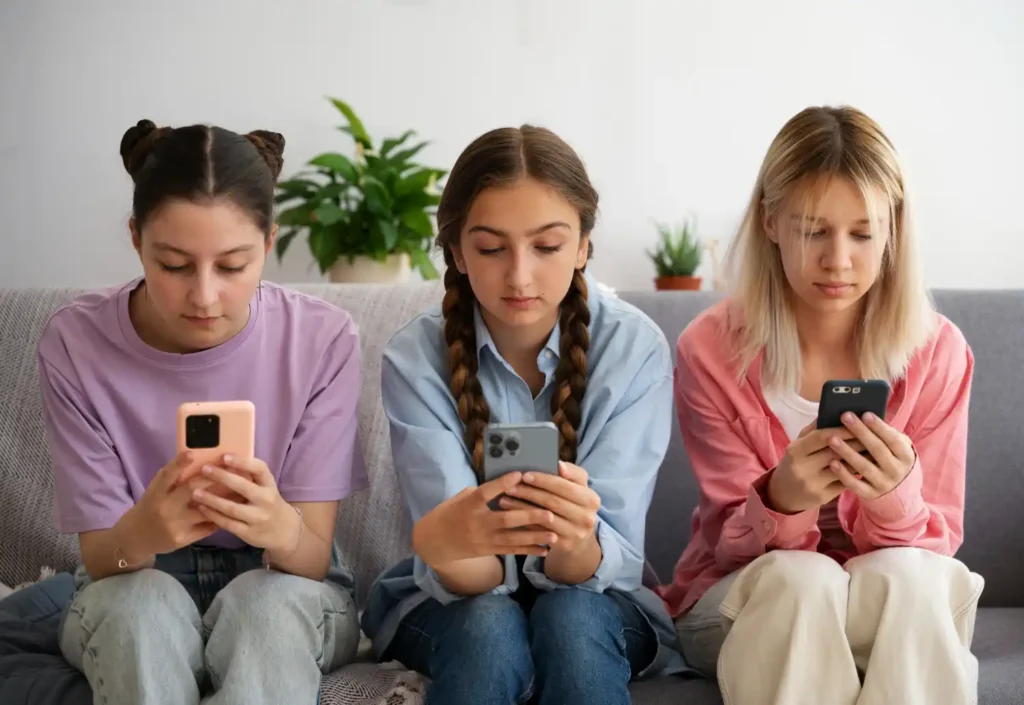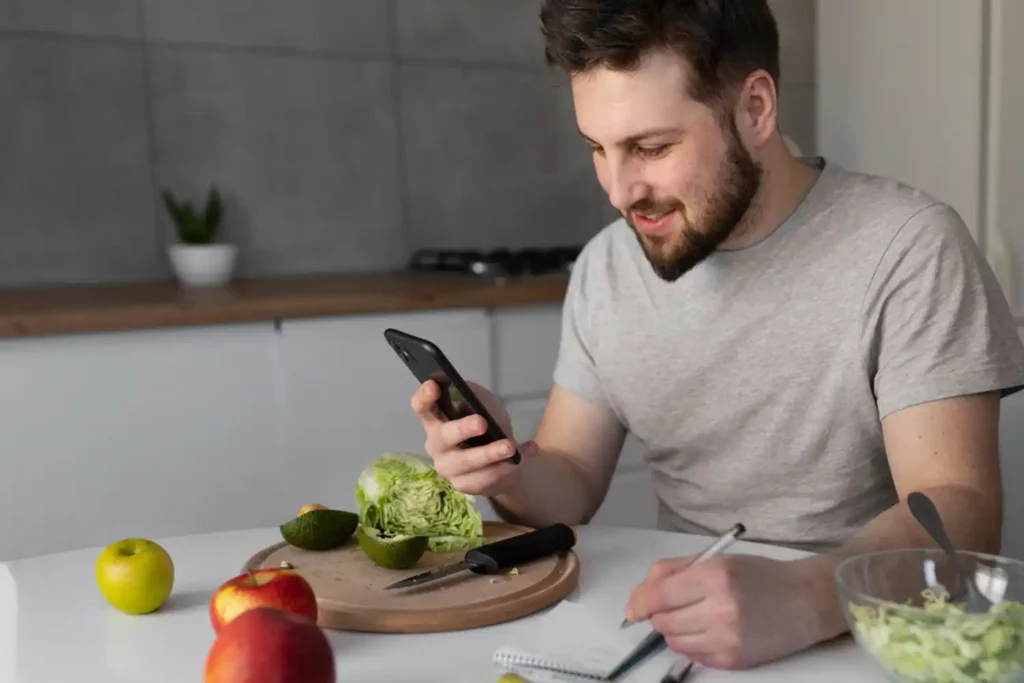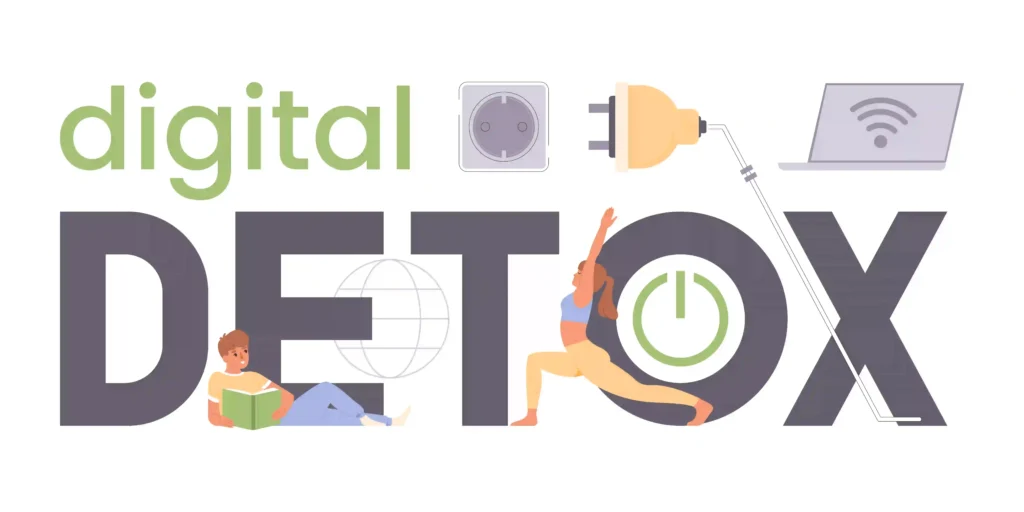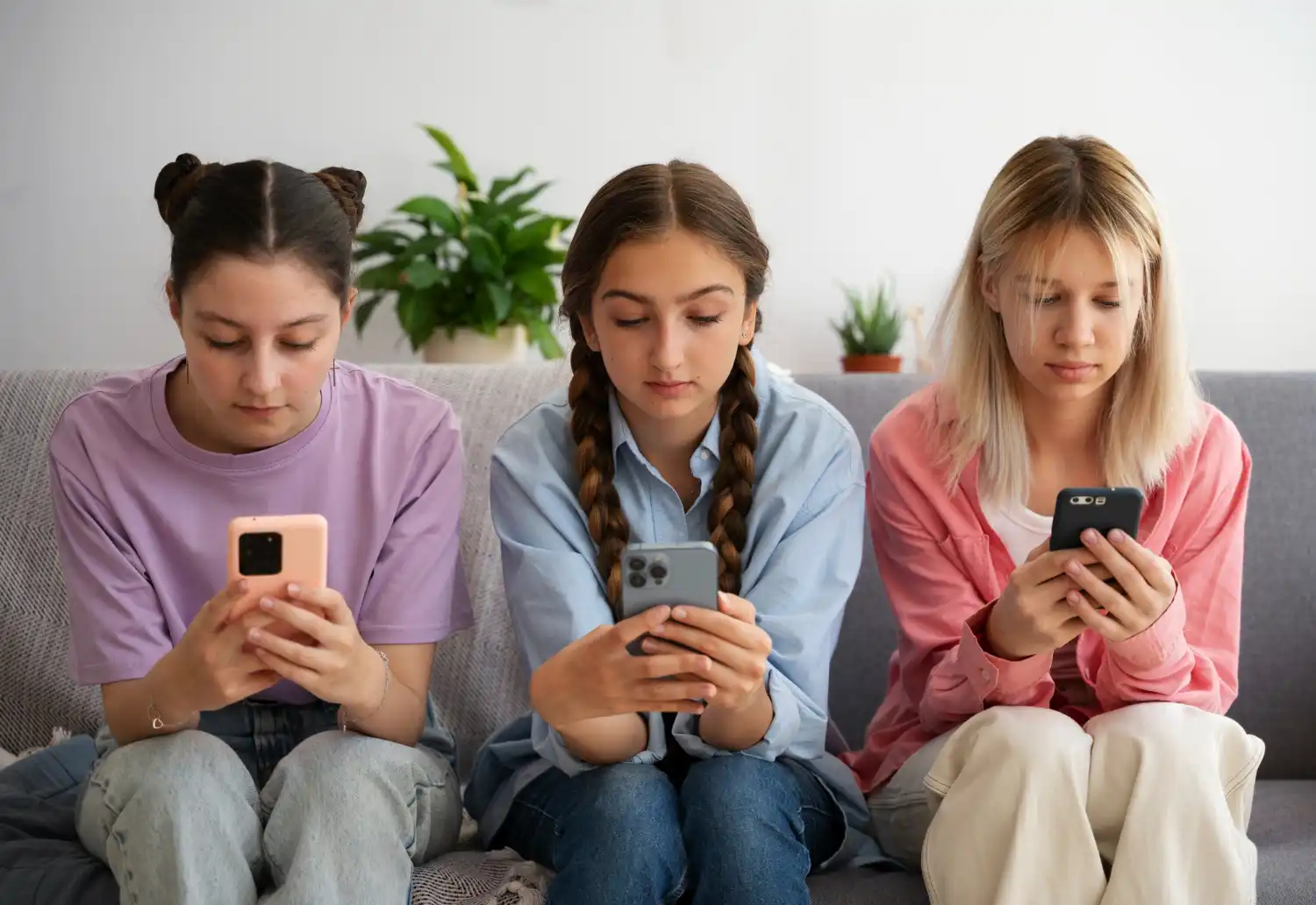
Table of Contents
1. Introduction: Is Your Smartphone Running Your Life?
Break mobile addiction before it takes over your life. Have you ever picked up your phone just to check a notification and found yourself still scrolling 30 minutes later? You’re not alone. Smartphones have become deeply embedded in our daily routines—they connect us to work, family, friends, and entertainment. However, their constant presence often leads to unintended overuse.
We often fail to recognize how quickly a few moments turn into hours of screen time. According to research, the average user touches their phone over 2,600 times per day. That’s not just a habit—it may be a sign of digital dependency. Understanding the root of this behavior is the first step toward breaking free.
2. Signs of Mobile Addiction

Wondering if you’re addicted? Here are some common red flags that indicate mobile overuse:
- You check your phone within minutes of waking up: Instead of starting the day mindfully, your first instinct is to grab your phone.
- You feel anxious when your phone is out of reach: If being away from your device causes stress or panic, that’s dependency.
- You scroll endlessly without a purpose: If you find yourself just swiping or tapping for no reason, it’s often habitual behavior, not conscious use.
- You struggle to focus while working or studying: Notifications or curiosity about what’s on social media constantly disrupt your concentration.
- Your screen time exceeds 5+ hours per day (excluding work): Excessive screen time has been linked to poor sleep, mental fatigue, and even low self-esteem.
3. Why Mobile Addiction Happens: The Psychology Behind the Habit

Mobile apps are engineered to be addictive. Their goal is not just to serve you but to keep you coming back. Here’s how they work:
- Dopamine Loops: Every ping, like, or comment sends a small reward signal (dopamine) to the brain, which encourages repeated behavior—just like a slot machine.
- Fear of Missing Out (FOMO): Constant updates on what others are doing make you feel left out if you’re not checking in regularly.
- Social Validation: The more you post, the more likes and reactions you crave. This cycle of validation keeps you engaged.
- Endless Scroll: Social platforms provide content feeds with no end, removing natural stopping points and encouraging endless engagement.
Understanding these tactics empowers you to recognize manipulation and take back control.
4. Negative Effects of Mobile Addiction

Overusing your smartphone doesn’t just waste time—it can have serious consequences:
- Mental Health Issues: Constant comparison, information overload, and lack of downtime can lead to anxiety, stress, and low mood.
- Productivity Loss: Checking your phone frequently interrupts flow and deep work, making tasks take longer.
- Poor Sleep Quality: The blue light emitted by screens suppresses melatonin, delaying sleep and reducing its quality.
- Weakened Relationships: Being mentally present with family and friends becomes difficult when you’re physically present but digitally distracted.
- Physical Problems: Neck strain, poor posture, dry eyes, and a sedentary lifestyle are all common results of too much screen time.
5. Proven Strategies to Break Mobile Addiction

Recommended Reading: How to Beat Phone Addiction – Harvard Health Blog
5.1 Set Usage Limits
Set daily app limits using built-in tools like Digital Wellbeing (Android) or Screen Time (iPhone). You can also use Freedom or Stay Focused to block access once your limit is reached.
5.2 Replace the Habit
Replace screen time with other healthy habits like journaling, reading, walking, or spending quality time with family. Build a new routine around activities that make you feel good without a screen.
5.3 Turn Off Notifications
Learn how to manage notifications on Android or customize alerts on iPhone so only essential alerts (calls, calendar reminders) get through. This reduces the urge to constantly pick up your phone.
5.4 Create No-Phone Zones
Designate areas where phone use isn’t allowed—like the dining table, bedroom, or meetings. For more ideas, explore this Digital Detox Guide.
5.5 Track Your Progress
Use Digital Wellbeing or Apple Screen Time trackers to monitor your daily phone usage. Reflect weekly and set new goals. Celebrate your wins, like a day with 2 hours less screen time.
6. Use Technology to Control Technology

External Resource: Digital Wellbeing by Google
These apps can help you take back control of your time:
- Forest: Focus on tasks by growing a virtual tree that dies if you leave the app.
- Stay Focused: Set custom usage limits for apps or block them entirely during work hours.
- Freedom: Temporarily block internet access on your devices so you can focus without distractions.
- Digital Wellbeing / Screen Time: Monitor your usage patterns and receive alerts when you exceed limits.
- One Sec: Adds a brief pause before opening apps, giving you a chance to rethink and possibly avoid them.
7. Healthy Alternatives to Screen Time

Instead of scrolling, try activities that nourish your body and mind:
- Read physical books: Expand your knowledge and rest your eyes.
- Practice yoga or meditation: Ground yourself with breath and movement.
- Explore creative outlets: Try painting, writing, or playing a musical instrument.
- Spend time in nature: Go for a walk, visit a park, or garden at home.
- Engage with loved ones: Talk, play games, or cook together.
8. Take a Digital Detox Challenge

Read: 30-Day Digital Detox Plan – Time Magazine
Ease into a better balance by trying one of these detox ideas:
- Go 1 full day without social media each week
- No phone use after 9 PM for 7 days
- Try the 30-day minimal app challenge: Uninstall one non-essential app each week and see how you feel.
Saving even one hour a day from unnecessary screen time gives you 30+ hours a month—time that can go into growth, relationships, and relaxation.
9. Build an Offline Morning and Night Routine

The way you begin and end your day greatly impacts your mental clarity, emotional well-being, and productivity. But if the first and last thing you see is your phone, you’re starting and ending with distraction—not intention.
Morning Routine (Phone-Free First Hour)
- Avoid checking notifications or messages right after waking up
- Do light stretching, drink water, or go for a short walk
- Read a few pages of a physical book or journal your thoughts
- Set goals for the day before turning to screens
Night Routine (Wind Down Without Screens)
- Avoid screens at least 60 minutes before bedtime
- Practice gratitude journaling or read to relax the mind
- Dim the lights, listen to calming music or meditate
- Leave your phone in another room or on airplane mode
Creating bookends to your day without screens trains your brain to focus better and improves sleep, mood, and self-control.
Pro Tip: Use a real alarm clock instead of your phone to avoid morning screen trap.
10. When to Seek Help
If your mobile use:
- Interferes with your work or academic responsibilities
- Disrupts your sleep consistently
- Harms your relationships with friends or family
…then it’s worth speaking to a digital wellness expert or therapist. Professional support can guide you through customized solutions and sustainable change.
10. Final Thoughts

Your smartphone is a tool—but only if you use it with intention. Mobile addiction is not your fault—it’s the outcome of apps designed to keep you hooked. But the good news is, change is possible.
Start with small actions: track your screen time, try a one-hour daily break, or talk to a friend face-to-face instead of texting.
At Jivansaar, we believe small habits lead to powerful transformations. Reclaim your focus. Reclaim your time. Reclaim your life.
Explore more self-growth content at Jivansaar.com
Frequently Asked Questions (FAQs)
Q1: What is mobile addiction?
A: Mobile addiction is the compulsive overuse of smartphones and apps that interferes with your daily life, productivity, and mental health. Learn more in this Harvard Health Guide on Smartphone Addiction.
Q2: How do I know if I’m addicted to my phone?
A: Signs include checking your phone first thing in the morning, feeling anxious when it’s not nearby, spending 5+ hours daily on non-work screen time, and struggling to focus without distractions. For more details, visit Verywell Mind’s Mobile Addiction Guide.
Q3: Can excessive phone use impact mental health?
A: Yes. Research shows it increases stress, anxiety, and depression due to constant notifications and social comparison. Read this American Psychological Association article for insights.
Q4: Are there apps to help reduce phone usage?
A: Yes. Apps like Forest, Freedom, and Stay Focused can block distracting apps and set usage limits effectively.
Q5: What are healthy alternatives to using my phone?
A: Try reading books, going for a walk, meditating, cooking, or spending time with loved ones. For ideas, see this Time Magazine Digital Detox Guide.
Q6: When should I seek professional help for mobile addiction?
A: If phone use disrupts your work, sleep, or relationships consistently, consider talking to a therapist or digital wellness expert. Find help via Psychology Today’s Therapist Directory.

Leave a Comment